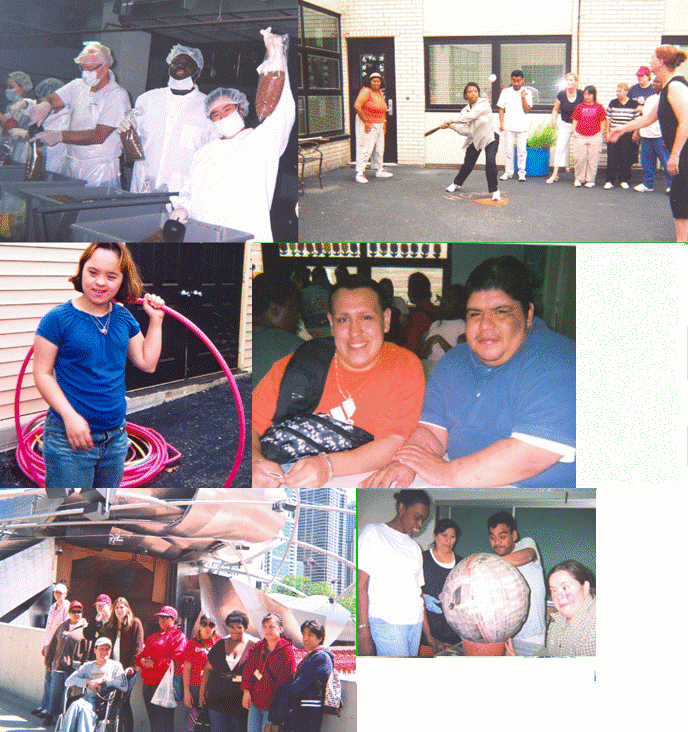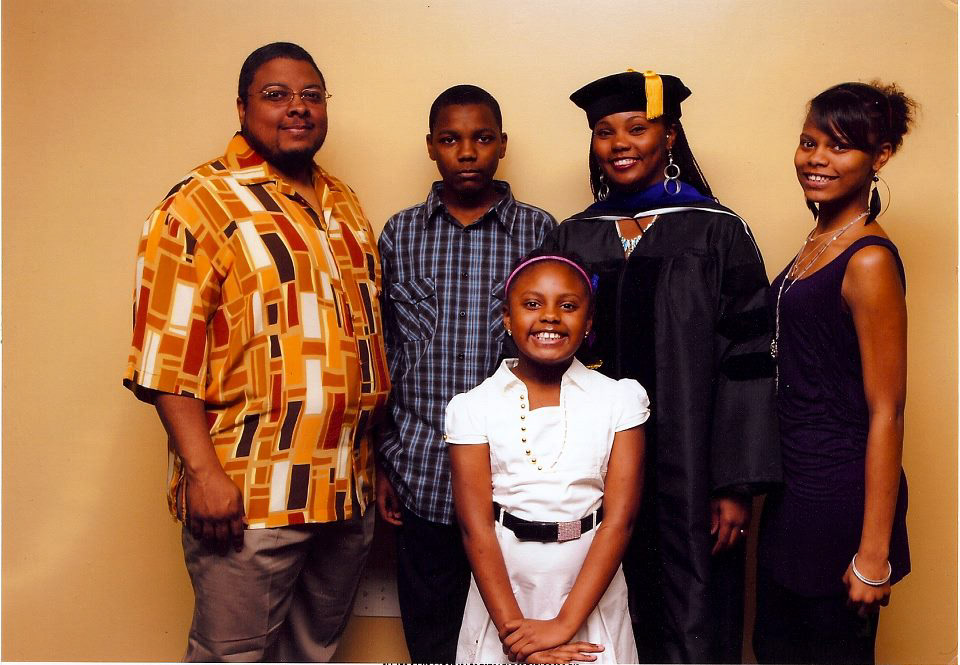My Special Education Position Posture
Position Paper on Philosophy of Special Education and theTreatment of Individuals with Disabilities
I have spent the vast majority of my life assisting,rendering direct care, advising, counseling, and vigorously maintaining anadvocacy on behalf of those with physical, mental-psychiatric and learningdisabilities. Whether my activities havebeen in the arenas of private medical care, the US Veteran’s Administration, psychiatricnursing care with both the federal and the state department of developmentaland mental health, university office of student disability services [as a testproctor, tutor & note taker] or as a non-profit administrator andfund-raiser for Parkinson’s Syndrome victims; the standard philosophy of caredictates certain common tenets. Thequality of service provision, the level of professionalism exhibited withininteraction and the inherent methodologies employed in all theclient-patient-tutor-mentor relationships remain centrally influenced byrespect, empathy, dignity, and acknowledgment for self-determination within therole of partnerships striving to meet mutually beneficial resolutions.
The policy mandated by the ethics ofinclusion demands that, in the case of special education, a sense of fairnessis promoted conducive to establishing teaching methods and classroom managementchoices that effectively increases the opportunities for growth and achievingacademic-personal goals of those facing disability challenges.
Overcoming past deficiencies, institutionalizeddiscriminatory practices, widespread segregation and disproportionate fundingthat enhanced the negative impact felt in the educational milieu throughouthistory must include multi-faceted initiatives that holistically address theindividual needs of special education students. It is a requirement for themodern special education professional to render academic services that exhibitthrough understanding of the medical, psycho-social, legislative, judicial,educational and pedagogical environmental factors impacting thestudent-teacher-parent relationship.
It is imperative that a philosophy which embracesnot only the student’s right to a learning environment of the least restrictivequalities reflecting inclusion into general education milieu’s but as well,also adheres to a wide-ranging and professionally accepted standard ofcurriculum that offers the student individually tailored opportunities toachieve educational goals. These goalsmust be reflective of the individual student’s specific challenges relative totheir disability. Yet, we must maintainaccommodation’s within the classroom that display a full respect for thestudent’s status as a person with disabilities and not as a disabled person.
The inclusion of multidisciplinary team approaches that encompass the spirit ofpartnerships between the student, teacher, psycho-social professionals, parentsand community representation allows for a broad-based approach that isconducive to varying perspectives and innovative methods in support of thecommon goal; the student’s best interest.
Position Paper on Philosophy of Special Education and theTreatment of Individuals with Disabilities
I have spent the vast majority of my life assisting,rendering direct care, advising, counseling, and vigorously maintaining anadvocacy on behalf of those with physical, mental-psychiatric and learningdisabilities. Whether my activities havebeen in the arenas of private medical care, the US Veteran’s Administration, psychiatricnursing care with both the federal and the state department of developmentaland mental health, university office of student disability services [as a testproctor, tutor & note taker] or as a non-profit administrator andfund-raiser for Parkinson’s Syndrome victims; the standard philosophy of caredictates certain common tenets. Thequality of service provision, the level of professionalism exhibited withininteraction and the inherent methodologies employed in all theclient-patient-tutor-mentor relationships remain centrally influenced byrespect, empathy, dignity, and acknowledgment for self-determination within therole of partnerships striving to meet mutually beneficial resolutions.
The policy mandated by the ethics ofinclusion demands that, in the case of special education, a sense of fairnessis promoted conducive to establishing teaching methods and classroom managementchoices that effectively increases the opportunities for growth and achievingacademic-personal goals of those facing disability challenges.
Overcoming past deficiencies, institutionalizeddiscriminatory practices, widespread segregation and disproportionate fundingthat enhanced the negative impact felt in the educational milieu throughouthistory must include multi-faceted initiatives that holistically address theindividual needs of special education students. It is a requirement for themodern special education professional to render academic services that exhibitthrough understanding of the medical, psycho-social, legislative, judicial,educational and pedagogical environmental factors impacting thestudent-teacher-parent relationship.
It is imperative that a philosophy which embracesnot only the student’s right to a learning environment of the least restrictivequalities reflecting inclusion into general education milieu’s but as well,also adheres to a wide-ranging and professionally accepted standard ofcurriculum that offers the student individually tailored opportunities toachieve educational goals. These goalsmust be reflective of the individual student’s specific challenges relative totheir disability. Yet, we must maintainaccommodation’s within the classroom that display a full respect for thestudent’s status as a person with disabilities and not as a disabled person.
The inclusion of multidisciplinary team approaches that encompass the spirit ofpartnerships between the student, teacher, psycho-social professionals, parentsand community representation allows for a broad-based approach that isconducive to varying perspectives and innovative methods in support of thecommon goal; the student’s best interest.
The art of matching expectationswith intent is a hallmark for efficacy in leadership, mentorship and allnegotiation activities for humankind. The transfer and effective utilization of knowledge is the cornerstone ofour civilization’s progress. It is indeed, a ‘prima fascia’ moral imperative ofthe highest calling. I concur withauthor Richard Paul who stated “…in our last column we provided one example ofthe manner in which one might design instruction so that students think theirway through the logic of the subject rather than memorize bits and pieces ofsomeone else's thought (never grasping its logic).” Yet, without our ability tograsp, employ and implore both truth and trust, communication will becomeimpotent at best. Unless one fully understands the best methods in which tocapture the faith and attention of the object of education, disaster looms. Wemust act incisively, while simultaneously being aware of the exact nature ofthe ‘students’ perception of the teacher and his/her message. For at the heartof everything is the effort to improve the quality of existence and criticalthinking which will be in vain if the target is missed.
The James H. Hart Junior HighSchool, located at 182 nd & Morgan Avenue in Homewood, Illinoiswas the site of the field observation that took place primarily on September30, 2011. The grade range covered wasboth 7 th & 8 th grades. The nature of the student population wasprimarily regular education with specific classes labeled Reading 180designated for special education functions. There were multiple classrooms where more than one teacher was assignedif the activity was a multimedia event such as what took place in room 32. There in room 32 a screening of the CBStelevision 48 Hours Mystery program segment was entitled “School Bullying &Cyber Bullying.” Students in attendancewere of mixed gender, 7 th graders who were exposed to issuesincluding possible fear of reprisals for informing school officials or parentsof bullying activities at school. The class was apprised of possible solutionsthat schools could take to deter bullying like the formation of anonymousreporting methods & the creation of in school support groups or networksfor victims. The students in classviewing the video were very focused on the topic & remained attentivethroughout the session.
During other classroom activitiesat Hart pop quizzes on grammatical tools in language arts related to verb tensetook place. For the room 37 activitiesthe class was allowed to participate in a review session of the test answersand verbally prompted by the teacher to ask needed question that could clarifyany areas of confusion for students. There was also a discussion of homework & a collaborative sessioninvolving a class essay where verbage related to number words was performedduring the creation of a narrative. Aswell, room 37 hosted the use of expository writing techniques & samples ofpeers essay’s related to a book report. There, Ms. Davis, the class teacher, invited students ask for neededcounsel or guidance on the mechanics of writing & grammar. It was observed that while this tended torepresent a more classical, teacher-centered learning environment, someclassrooms like room 32’s science class led by Ms. Vagner, was observed to bemore constructivist in nature. Thescience class pupils were encouraged to participate in a study of how todetermine real density for elements of our atmosphere using traditionalscientific lab methods. They were alsoencouraged to utilize their own development of hypothetical thesis fordetermining what the content of the atmosphere actually was when compared towhat they believed it may be.
Multi Cultural Consideration:Social learning, situational & affectionate bonding, multiculturalissue related to cognitive development across cultures for minorities, groupidentification, trait aggression, language differentiation & bilingualassimilation, language codification, prejudice and racism within socio-economicconstructs. Ethical superego ideal & emotional; cognitive developmentissues for self esteem, moral consequence, positive or negative operantconditioning reinforcement via verbal approval rewards, Ericksen modeling &Vygotsky scaffolding for social learning interaction schemes. Language developmentassimilation, modeling & cross-cultural issues regarding vocabulary growth,linguistic accents, articulation & assimilated emotional expression throughgesture or language models
· Verbal quizzeson knowledge content
· Lecture &multimedia presentation on interactive discussion
· Instructionalsupport via lecture, handouts & PowerPoint show for stress managementissues when looking for work or being rejected
· Social learningexhibited by the presentation of operational knowledge
· Promotion ofattribution by giving the students encouragement to contribute to classroomknowledge acquisition. Alsoself-actualization via giving classmates opportunity apply self developedschemes for applying social learning experiences that deal with appropriatebehaviors, learning experiences & test choices.
· Verbal quizchoices allow for demonstration of answers relative to cognitive developmentinfluences for comprehension, intellectual growth, language articulation,emotional maturity
· Social learning& cognitive development perspectives dealing with assertiveness,self-esteem, moral reasoning via need for truth & authenticity
· Principles ofattribution, social learning & issues of self-identity or group affiliationrelative to student tastes, ambitions, academic preferences & intellectualacuity
· Promotion ofmoral reasoning, assimilation of parental role modeling for academic skillsets, self-identity cognitive development via balancing of egocentricity viaobjective consideration of peer perceptions using shared peer-knowledge information
· Cognitivedevelopment & social learning via creation & implementation ofappropriate coping strategies for expressions of rejection, anger, hostility,hopelessness that impact increased adolescence angst over of appropriate copingstrategies for expressions of rejection, anger, hostility, hopelessness thatimpact increased adolescence angst over performance & self image,temperament, morality and stage 3-4 development of comprehension &perception
Sincerely;
Mr. Jeffery Massey










